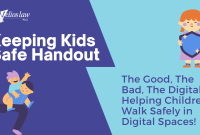Nonprofits, Ministries, & Child Protection

Nonprofits & Ministries
A successful nonprofit unites around its vision and purpose. But legal conflicts can leave people divided, morals compromised, and the truth lost. At Telios Law, our legal counsel focuses on healing and reconciliation.
We help protect your members, children, and organization without compromising your vision or the truth.
Telios Law advises organizations on legal and policy issues, with a special emphasis on First Amendment policies, international law, child protection policies and practices, and employment policies and responses. We assist with forming 501c3 nonprofits, coordinate legal audits, and conduct investigations.
Telios Law represents organizations in litigation defense, asserting constitutional defenses around religious free exercise, religious privilege, and other First Amendment issues, as well as normal business and employment law principles. We also help ministries consider restorative approaches that may bring healing to those harmed and avoid litigation.
Child Protection
Telios Law protects children served by nonprofits and ministries with policy advice, training, assisting with appropriate responses, and investigations.
- Policy review and implementation give your team an actionable plan to prevent abuse in the first place.
- Training on child protection and responses to allegations through Telios Teaches prepares and educates your team.
- Investigations into current and historic allegations of misconduct may be part of an appropriate response (for more information, visit Telios Investigations).
More Ways Telios Law Can Help Your Organization
Prevent misconduct and respond to allegations with training that cultivates a culture of care and integrity:
Telios Teaches: Training for Churches and Ministries
Learn how Telios Law can help with your investigation:
Subscribe to our Ministry & Religious Law "Telios Tip" emails for a monthly, educational hot take on legal matters that could affect your organization.
Ministry & Religious Law Updates
Please Note: By signing up you are agreeing to Telios Law's Privacy Policy.

This article addresses the common sources of internal church disputes and discusses how churches, ministers, denominations, and other players can identify potential areas of controversy, prevent litigation, and help ensure favorable outcomes if litigation does arise. First, we discuss the concept of church polity as a framework for understanding issues associated with litigation. Next we cover how the governing documents of a church are often critical to both creating and resolving legal disputes. Third, we discuss church litigation resulting from church property disputes and how to prevent and prepare for such controversies. Fourth, we focus on avoiding legal trouble related to defamation and other claims resulting from church discipline. Fifth, we discuss constitutional principles that restrict courts from deciding certain church disputes. Finally, we explore practical steps that church leaders can take to prevent conflicts and keep them out of court.

This article discusses which organizations and activities can qualify for tax exemption and what to consider before starting a nonprofit. Next, it covers selecting your organization’s initial directors and officers and drawing up your organization’s governance documents. Third, it examines the different categories of nonprofit organizations that the IRS recognizes as tax-exempt under Section 501(c)(3). Fourth, it looks at restrictions on private inurement and political activities and how to avoid getting into trouble with the IRS on those issues. Finally, it examines the process of applying for 501(c)(3) status and how to maintain that status going forward.

This article explores what businesses and organizations should consider for the scope and mechanics of their commercial general liability (CGL) insurance policies. First, we will look specifically at some common scenarios where an organization might have an expectation of coverage but where coverage might not exist. Second, we will discuss ways to gauge whether your organization has sufficient policy limits for each area of potential risk. Finally, we will explain why it is important to keep records of all the policies that have been in effect during the course of your organization’s operation.

Created for Theresa Sidebotham’s recent CSPN Global Conference talk, this free, downloadable handout is full of practical tips and trusted tools to help protect children online. Whether you're a parent, ministry leader, or educator, it's easy to read, easy to share, and designed to support safer digital spaces for kids.

In this compelling guest blog, Joahna K. Koning, M.Ed., goes over the impacts of high-risk environments on child development and well-being. Essential reading for ministry leaders and families, this article provides actionable recommendations to safeguard children living cross-culturally, ensuring their healthy development despite challenging conditions.

In many ways, AI promises to improve our world. In others, it brings new risks and threats. Typically, when Americans think “Threats from AI,” we think of science fiction scenarios involving rogue AIs and exploitive mega-corporations. But evil robots and syndicates aren’t the only ones able to exploit AI: child predators can too.

When people think of child sexual abuse or sexual misconduct against children, they often do not think of inappropriate behavior between children. But the reality is that often, minors are both perpetrators and victims. This article provides recommendations for responses that will bring healing rather than make matters worse.

The U.S. Department of Labor has proposed a new rule for determining whether a worker is an employee or a contractor. This article discusses the new rule and its importance for businesses.

Part one discusses how organizations operating abroad should be wary of possible gaps in insurance coverage. Avoiding those gaps is essential to the continued health of your ministry.

Under what circumstances can Directors of a corporation be personally liable for decisions taken by the Board? This post explains where personal exposure might exist for Board members.
